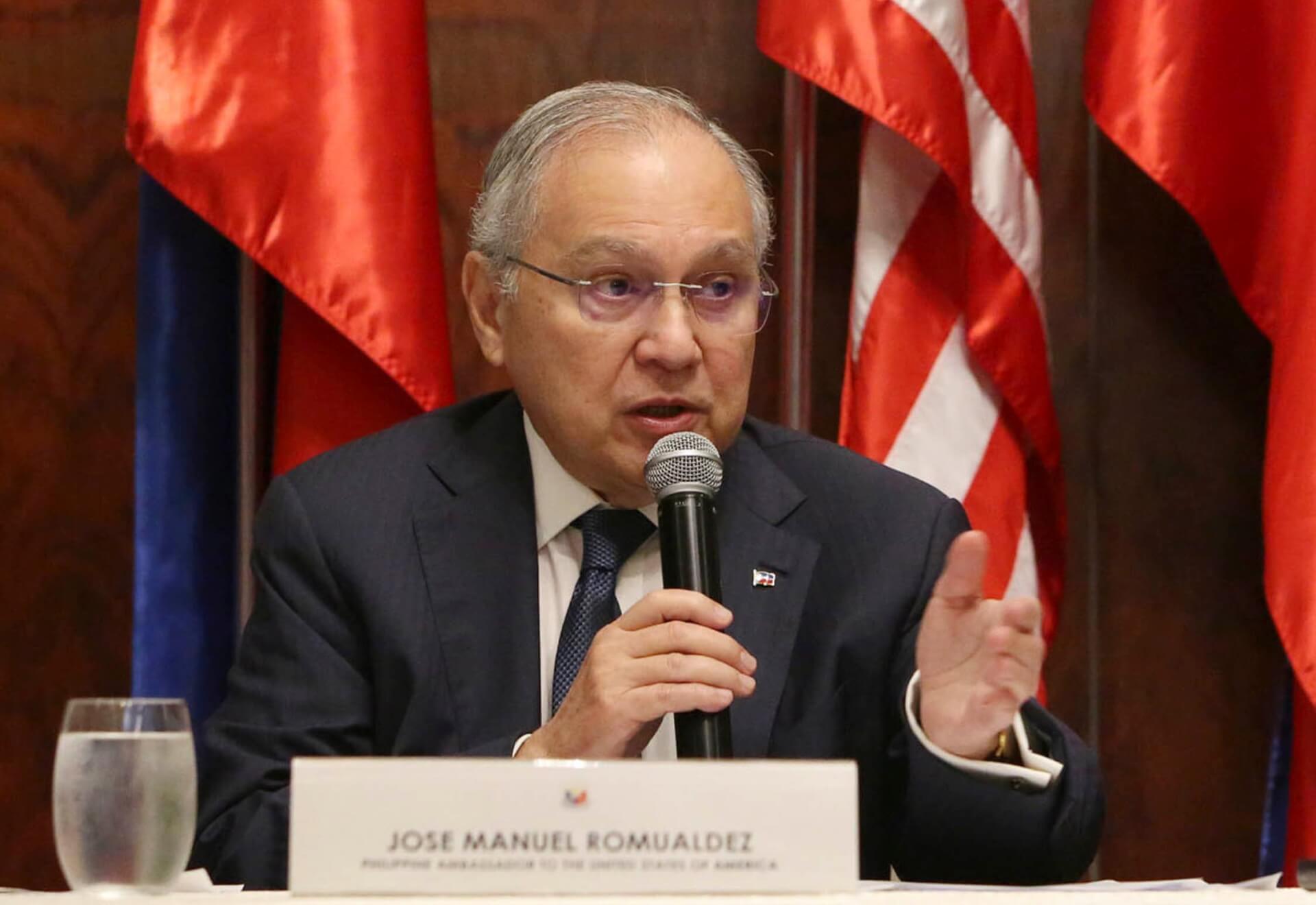The United States (US) and the Philippines held their ninth Bilateral Strategic Dialogue in Washington, D.C. on Monday and Tuesday. Both sides continually reaffirmed their commitment to peace, security, and economic prosperity in the Asia-Pacific region.
From the US side, the meeting was attended by Assistant Secretary of State Daniel Kritenbrink and Assistant Secretary of Defence Ely Ratner, while the Philippines was represented by Ambassador to the US Jose Manuel Romualdez, Department of Foreign Affairs Undersecretary Theresa Lazaro, and Department of National Defence Undersecretary Cardozo Luna.
Both delegations extensively consulted each other on joint efforts needed to end the COVID-19 pandemic, uphold the rules-based maritime order in the contentious South China Sea, protect and respect human rights, and strengthen the interoperability of their armed forces. Additionally, the two allies discussed measures to deepen their extensive economic relationship by cooperating in several areas, including science and technology, fisheries, and infrastructure.
On the topic of China, both countries said that they share the view that Beijing’s “expansive maritime claims” in the volatile South China Sea “are inconsistent with the international law of the sea as reflected in the United Nations Convention on the Law of the Sea, and with the unanimous July 12, 2016 Award in the South China Sea Arbitration.”
With respect to maintaining regional security in the disputed water body, a statement released by the US Department of State said that it remains “intent” on further strengthening the defence capabilities of the Philippines’ Armed Forces through the existing Visiting Forces Agreement (VFA), “more so given the prevailing geopolitical tensions, especially in the maritime areas of the Philippines.” Washington also pledged to continue making funding arrangements for the same.
Both sides affirmed their intention to continue “addressing current and emerging threats” by strengthening their combined deterrence capabilities. They also announced plans to develop new bilateral defence guidelines “that support a mutual understanding of roles, missions, and capabilities within the framework of the [VFA] alliance.”
In addition, they agreed to “enhance bilateral coordination and communication processes” to facilitate the effective operationalisation “of alliance priorities and promote mutual understanding” of the provisions of the VFA. The statement concluded that both countries resolved to continue defence and security cooperation through regular high-level visits and dialogues in order “to promote interoperability of the US and Philippine armed forces.”
“We plan to update bilateral planning documents, establish a coordination centre to improve bilateral information sharing and planning, develop joint command and control capability for operations, and complete a bilateral maritime framework to enable more comprehensive and timely execution of activities. We seek to strengthen this cooperation through education and training, capacity-building, interoperability, and modernization of defence and security institutions,” the statement said.
It further added that both sides “intend to continue to build the capacity of the Philippine security forces” and will facilitate the signing of a General Security of Military Information Agreement (GSOMIA) in the next year “to complement information-sharing and equipment modernization efforts.”
The two countries also agreed to “review, update, and follow up” on their action plans across key areas of cooperation, while “taking into account both existing and emerging challenges, through regular and sustained high-level visits and dialogue.” This includes the Bilateral Strategic Dialogue, the US-Philippines Two-Plus-Two Ministerial Dialogue, the Mutual Defence Board-Security Engagement Board, and the Trade and Investment Framework Agreement Meetings.
The VFA forms the cornerstone of the US-Philippines defence relationship. It came into effect in 1998 and provides a framework for the legal status of thousands of US troops in the Philippines for military exercises and humanitarian assistance. Two other bilateral military pacts—a Mutual Defense Treaty and an Enhanced Defense Cooperation Agreement (EDCA)— depend on the VFA. While the Philippines has previously warned of rescinding the VFA, it has backtracked on these threats in order to maintain a counterbalance against China.
US, Philippines Say China’s Claims in South China Sea Violate International Law
Both countries said they share the view that Beijing’s “expansive maritime claims” in the volatile South China Sea “are inconsistent with the international law of the sea.”
November 17, 2021

The Philippines' Ambassador to the United States, Jose Manuel Romualde IMAGE SOURCE: INQUIRER FILE / MARIANNE BERMUDEZ
